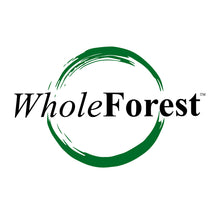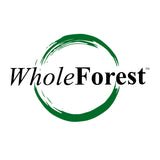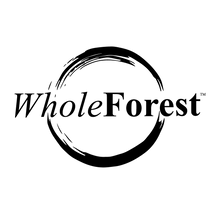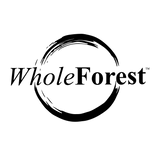Our Story
Whole Forest's story began in 2002, when Peter Pinchot, a recent graduate of the Yale School of Forestry, took a trip to visit his close friend, David Smith, who was volunteering for the Peace Corps in Cristobal Colón, Ecuador. The bus took Peter down a dusty unpaved road through steep Andean farmland, high-altitude Cloud forest, and, eventually, into the coastal plain. Cristobal Colón, a tiny town of 400, was the last town at the end of the road, situated at the very edge of the Chocó rainforest, one of the last remaining coastal rainforests in Ecuador.
Once a lush rainforest filled with wildlife, much of the forest was now pockmarked with cacao and African oil palm plantations. Local families were making a subsistence living by logging illegally, grazing cattle, or working on oil palm plantations. After a month in the town, Peter realized that the current land use was destroying one of the most bio-diverse ecosystems in the world.
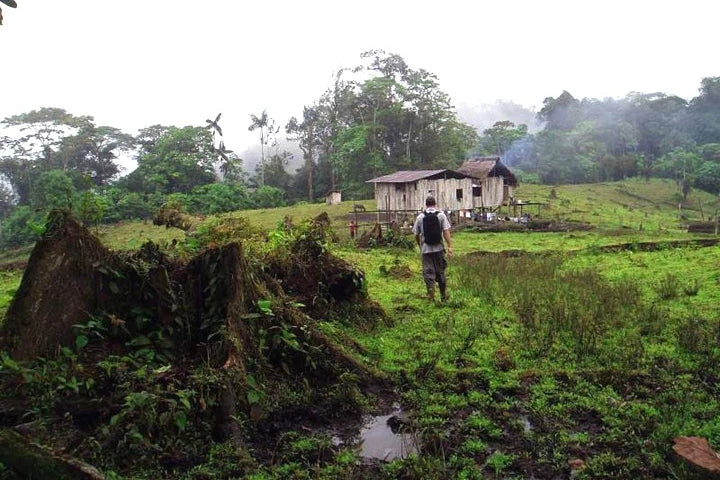
As the grandson of conservationist Gifford Pinchot, Peter was steeped in the legacy of forest conservation. He was able to see in this degraded Ecuadorian landscape the same pattern of deforestation that his grandfather had set about solving during the Progressive Era in America. But Ecuador is not the United States. There is no stable government ownership over national parks or a network of laws in place to change the prevailing pattern of destruction. Furthermore, these were private forests. Peter understood that, worldwide, conserving private lands was still the great unsolved puzzle of conservation.


Driven by their respect for the people of Cristobal Colón and their fear of global deforestation, Peter and David imagined what it would look like to implement Gifford Pinchot’s forestry model in Ecuador. Based on Gifford Pinchot’s three principles of conservation, they wanted to create a sustainable economy that would encourage forest conservation while improving the livelihood of its local residents. Peter was convinced that no conservation model would be effective unless it paid a living wage to the local people.
With this as a goal, Peter and David conceived a company, EcoMadera, which would support the community by selling wood products made from sustainably harvested timber. Working from the theory that local people would participate if their standard of living could improve, EcoMadera offered to pay 60% higher prices for legal timber.
After a number of community meetings, the town of Cristóbal Colón expressed support for the company, and sixteen community members decided to become shareholders in EcoMadera. The company received grants from USAID and several other NGOs, enabling the EcoMadera to build a health clinic and to begin research on the rainforest ecosystem.

By 2015, EcoMadera had matured out of its Peace Corps beginnings. Its 65 employees were conducting R&D in conservation, forestry, and wood products. They had also begun to manufacture balsa wood laminates that are used in wind turbine blades. The balsa business helped lay the groundwork for the next big change.
In 2017, EcoMadera was ready to evolve into a for-profit wood product company. The name was changed to Whole Forest to communicate the governing philosophy of the company. Under the name Whole Forest, the community began to harvest trees at a sustainable rate and produce wood products. This kept the forest intact and productive, just as Gifford Pinchot had demonstrated a century ago.

This pivot led to the blossoming of a new business partnership with Brad Sullivan of Cider Press Woodworks in Perkasie, Pennsylvania, where Whole Forest is now operating its design, marketing, and distribution. Whole Forest's Creative Director, Maura Costello, is working to build prototypes and discover aesthetics inherent to the many beautiful woods. She is also studying the performance of these remarkable hardwoods.

Our process from the beginning has been one of learning, taking calculated risks, and pivoting towards a stronger future. Globally, our goal is to stop deforestation and slow climate change. Locally, we aim to benefit the Chocó Forest and the people who depend on it with every action we take. We hope that our customers will grasp how valuable the products are to the families who can now envision a brighter future. We hope that you will be inspired by the beauty of the wood, and will join our mission to keep the rainforest intact as a resource for our planet. This is what the name Whole Forest means to us.
